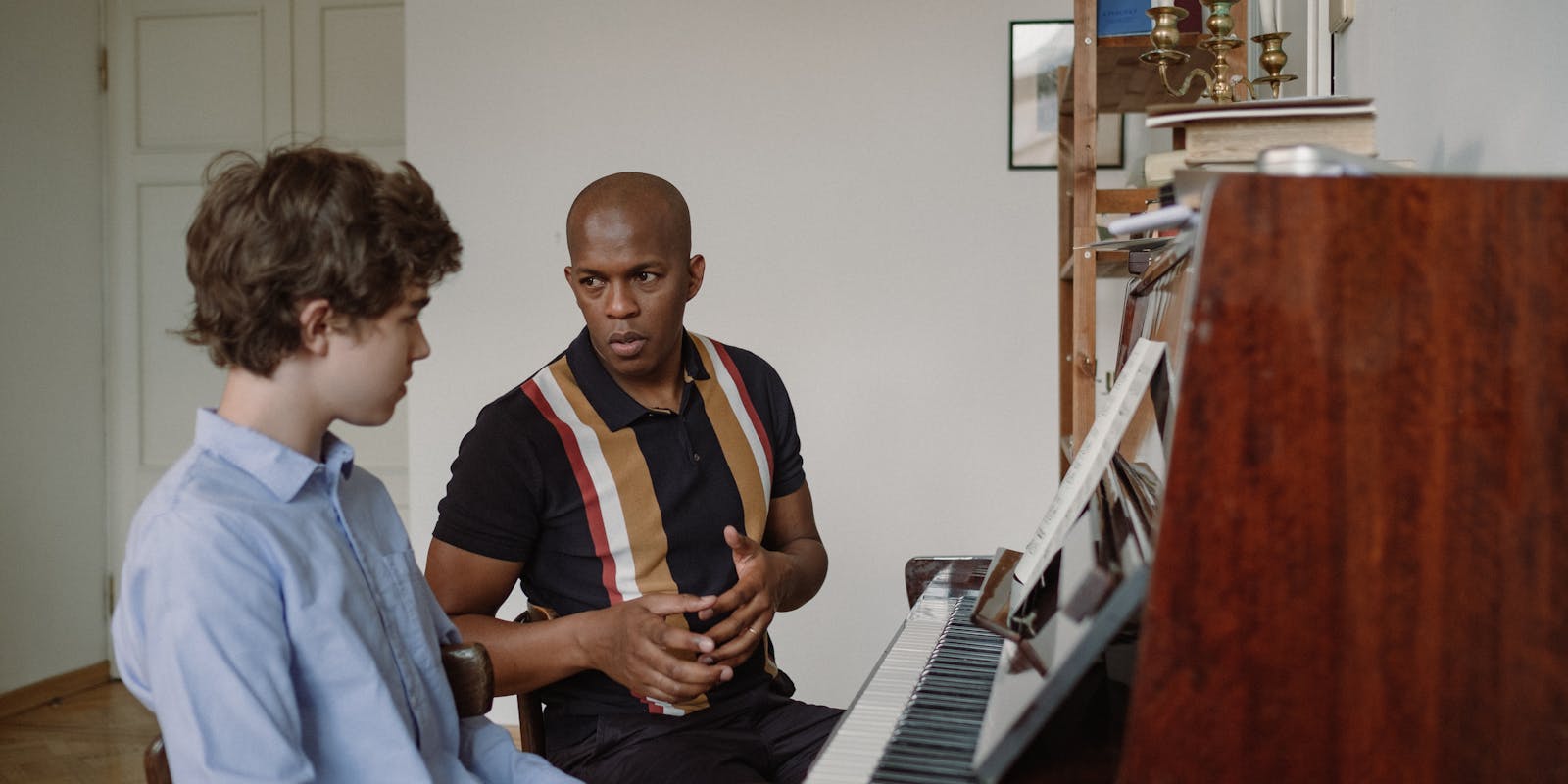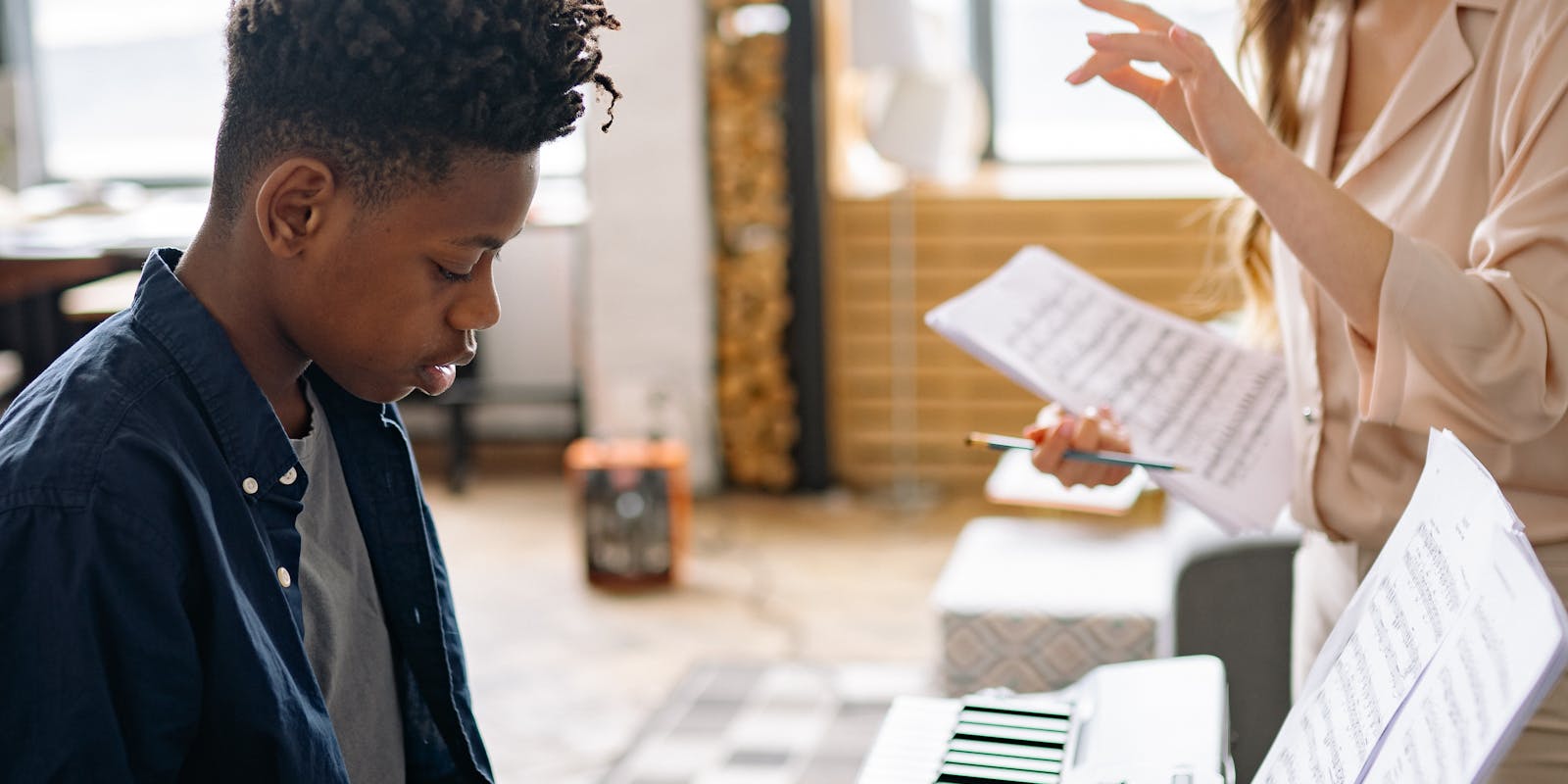Master the Keys: Your Ultimate Guide to Piano Lessons
Are you ready to embark on a musical journey that will elevate your soul and ignite your passion for piano playing? In this comprehensive guide, we will delve deep into the realm of piano lessons and explore the wonders of mastering the keys. Whether you are a complete beginner or a seasoned player looking to enhance your skills, this article is your ultimate companion in navigating the world of piano education.
From unraveling the myriad benefits of piano lessons to providing you with essential tips on finding the right instructor and developing a practice routine, we have got you covered every step of the way. Get ready to unlock your musical potential, immerse yourself in the joy of playing the piano, and discover advanced techniques that will propel your piano lessons to new heights. Let's dive in and explore the transformative power of mastering the keys! 🎹🎶

The Benefits of Piano Lessons: Unlocking Musical Potential
The Benefits of Piano Lessons: Unlocking Musical Potential
When it comes to unlocking your musical potential, piano lessons offer a myriad of benefits that extend far beyond simply learning to play an instrument. Engaging in piano lessons can significantly enhance cognitive skills, boost creativity, improve discipline, and even reduce stress levels.
One of the key benefits of piano lessons is the positive impact they can have on cognitive development. Learning to play the piano requires the brain to simultaneously process multiple components such as reading music, hand-eye coordination, and rhythm. This not only enhances memory skills but also improves problem-solving abilities and critical thinking.
Moreover, piano lessons provide an outlet for creativity and self-expression. As students progress in their lessons, they have the opportunity to explore different musical styles, experiment with composing their own music, and develop their unique musical voice. This creative outlet can be incredibly rewarding and empowering, allowing students to express emotions and ideas in a way that words often cannot.
In addition to cognitive and creative benefits, piano lessons also instill discipline and perseverance. Learning to play the piano requires consistent practice, patience, and dedication. Through setting goals, overcoming challenges, and ultimately mastering pieces, students develop a strong work ethic and a sense of accomplishment that extends far beyond the realm of music.
Lastly, piano lessons have been shown to have a calming effect on individuals, helping to reduce stress and anxiety. The act of playing the piano can be a meditative experience, allowing students to focus their minds, relax their bodies, and escape from the stresses of daily life. This mental respite can have profound effects on overall well-being and emotional health.
In conclusion, piano lessons offer a holistic approach to musical education, providing a wide range of benefits that go beyond simply learning to play an instrument. By engaging in piano lessons, individuals have the opportunity to develop cognitive skills, unleash creativity, cultivate discipline, and find solace in the music they create
Getting Started: Essential Equipment and Resources for Piano Lessons
Getting Started: Essential Equipment and Resources for Piano Lessons
When embarking on your piano lesson journey, having the right equipment and resources at your disposal is essential to set yourself up for success. Here's a detailed breakdown of what you'll need to get started on your musical adventure:
1. **Piano or Keyboard**: The most crucial piece of equipment you'll need is, of course, a piano or keyboard. If you're just starting out, a keyboard can be a more budget-friendly option, especially if you're not sure how committed you'll be initially. For a more authentic playing experience, an acoustic piano is unbeatable.
2. **Piano Bench**: A comfortable and height-appropriate bench is necessary to ensure good posture and proper hand positioning while playing. This might seem like a minor detail, but it can significantly impact your learning and playing experience.
3. **Sheet Music and Instructional Books**: Invest in beginner piano books, sheet music, and instructional materials tailored to your skill level. These resources will guide you through the basics of music theory, hand placement, and reading sheet music.
4. **Metronome**: A metronome is a handy tool for practicing rhythm and timing. It can help you develop a sense of tempo and improve your overall playing skills.
5. **Online Resources and Apps**: In addition to physical books, there are many online resources and apps available to aid in your piano learning journey. From virtual lessons and tutorials to interactive music theory games, these digital resources can supplement your learning and make practice more engaging.
6. **Headphones**: If you're practicing on a keyboard, invest in a good pair of headphones to allow for quiet practice sessions, especially if you live in a shared space or want to practice without disturbing others.
7. **Recording Device**: Consider using a recording device or an app on your phone to record your practice sessions. Listening back to your playing can help you identify areas for improvement and track your progress over time.
By ensuring you have the essential equipment and resources listed above, you'll be well-equipped to kickstart your piano lessons with confidence and set yourself up for a rewarding musical journey
Finding the Right Instructor: Navigating Your Piano Lesson Journey
Finding the Right Instructor: Navigating Your Piano Lesson Journey
When embarking on your piano lesson journey, one of the most crucial steps is finding the right instructor to guide you along the way. The relationship between a student and their piano teacher is incredibly important, as it can greatly impact the learning experience and overall progress.
The first step in finding the right instructor is to consider your own goals and learning style. Are you looking to play classical pieces, jazz improvisations, or maybe even compose your own music? Understanding your musical aspirations will help you find an instructor who specializes in the genre or style that you are most passionate about.
It's also essential to consider the teaching approach of potential instructors. Some teachers may focus more on traditional methods, such as sight-reading and music theory, while others may incorporate more modern techniques like playing by ear or improvisation. Finding an instructor whose teaching style aligns with your preferences can make a significant difference in your learning journey.
Additionally, don't hesitate to ask for recommendations from other musicians or friends who have taken piano lessons. Personal referrals can often lead you to highly qualified and compatible instructors who have a proven track record of helping students succeed.
Lastly, don't overlook the importance of personality fit. Building a rapport with your instructor can make the learning process more enjoyable and productive. A good piano teacher should be patient, encouraging, and able to adapt their teaching methods to suit your individual needs.
By taking the time to find the right instructor for your piano lessons, you'll set yourself up for a rewarding and fulfilling musical journey. So, navigate this decision thoughtfully, and you'll be well on your way to mastering the keys

Practice Makes Perfect: Developing a Routine for Effective Piano Lessons
Practice Makes Perfect: Developing a Routine for Effective Piano Lessons
Developing a consistent practice routine is essential for anyone looking to make significant progress in their piano lessons. Just like any other skill, mastering the piano requires regular practice to build muscle memory, improve finger dexterity, and enhance overall musicality.
To make the most out of your practice sessions, consider setting aside dedicated time each day to work on different aspects of your playing. Start by warming up with scales and technical exercises to limber up your fingers and improve coordination. Next, focus on the pieces you are currently learning, breaking them down into smaller sections to tackle any tricky passages. Remember, slow and steady practice is key to mastering challenging pieces.
In addition to your daily practice routine, it's important to set specific goals for each session. Whether it's mastering a difficult passage, improving your tempo, or working on dynamics, having clear objectives will help keep you motivated and on track during your piano lessons.
Don't forget to take breaks during your practice sessions to prevent burnout and maintain focus. Short, frequent breaks can help rejuvenate your mind and body, allowing you to return to your practice with renewed energy and concentration.
By developing a consistent practice routine tailored to your goals and aspirations, you'll be well on your way to mastering the keys and unlocking your full potential as a pianist. Remember, practice makes perfect, so keep setting aside time each day to hone your skills and watch as your playing improves with each passing session
Advanced Techniques and Tips for Taking Your Piano Lessons to the Next Level
Advanced Techniques and Tips for Taking Your Piano Lessons to the Next Level
Improving your piano skills requires dedication, practice, and a willingness to explore advanced techniques. As you progress in your piano lessons, it's essential to challenge yourself and push the boundaries of your comfort zone. Mastering the keys goes beyond playing the notes correctly; it's about infusing emotion, dynamics, and personality into your music.
One way to elevate your piano playing is by focusing on dynamics. Experiment with playing softly and loudly to add depth and emotion to your music. Dynamics can convey feelings and create a more engaging performance. Practice transitioning smoothly between different dynamics to enhance the overall musicality of your playing.
Another advanced technique to consider is exploring advanced scales and arpeggios. These foundational elements of music theory can help you improve your finger dexterity, speed, and overall technique. Challenge yourself with complex scales and arpeggios to strengthen your fingers and expand your musical repertoire.
Additionally, incorporating expressive techniques like rubato, vibrato, and accents can bring your piano playing to life. These nuances can add a personal touch to your performance and create a deeper connection with your audience. Experiment with these techniques during your practice sessions to develop your own unique style and musical voice.
Taking your piano lessons to the next level also involves setting specific goals and practicing with intention. Whether you aim to master a difficult piece, improve your sight-reading skills, or learn a new playing style, having clear objectives can keep you motivated and focused on your musical development.
Remember, patience and persistence are key when striving for excellence in piano playing. Celebrate your progress, learn from your mistakes, and always seek opportunities to grow and challenge yourself. By embracing advanced techniques and incorporating tips to enhance your piano lessons, you'll be well on your way to mastering the keys and becoming a more accomplished pianist
Conclusion
In conclusion, mastering the keys through piano lessons is a transformative journey that can elevate your soul and ignite your passion for music. Throughout this guide, we have highlighted the myriad benefits of piano education, emphasized the importance of finding the right instructor, and provided essential tips for developing a practice routine. Whether you are a beginner or a seasoned player, this ultimate companion has equipped you with the tools to unlock your musical potential, immerse yourself in the joy of playing the piano, and discover advanced techniques to enhance your skills. As you embark on this musical endeavor, remember that the journey of mastering the keys is not just about playing the piano but about embracing the artistry, creativity, and beauty of music. Keep practicing, stay inspired, and let your passion for piano playing flourish. 🎹🎶